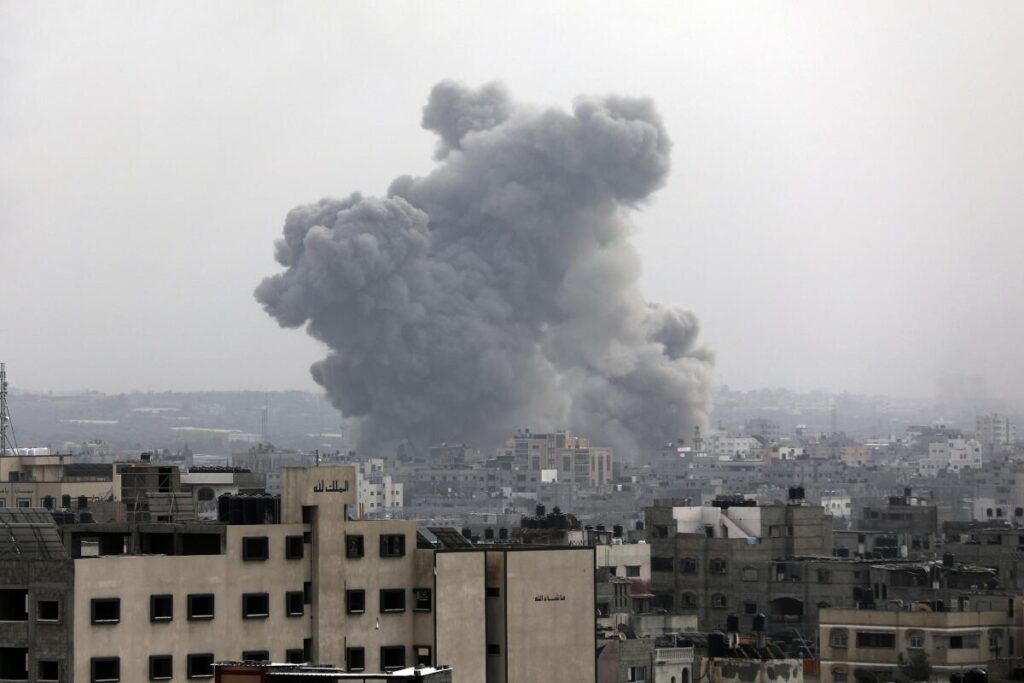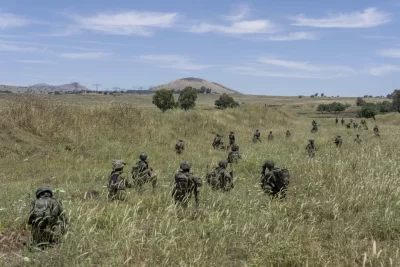
When 85-year-old Israeli woman Yocheved Lifshitz was released from Hamas captivity last week, she was warmly welcomed home. Then she began to speak.
Addressing reporters from a wheelchair at a hospital, Lifshitz described a harrowing experience in Hamas captivity but also said she had been fairly treated. Israeli media instantly seized on that nuanced portrayal as a blow to the country’s messaging that Hamas are savages.
A flurry of op-eds, social media posts and on-air discussion by Israeli journalists counseled Israeli officials how to manage further hostage releases to ensure Israel’s narrative was being effectively communicated.
The episode brought into focus the dual role played by Israeli media following Hamas’ devastating Oct. 7 attack on southern Israeli communities and the war that it set off. Beyond their traditional function as journalists, Israeli reporters are also in many ways acting as public advocates on behalf of the Israeli war effort, showing how deeply the trauma from the attack penetrated society.
Banners fly across the screens and sites of mainstream media outlets, declaring “we will win!” Newscasters decry Hamas’ atrocities as the act of “Nazis.” An Israeli news and entertainment portal has set up a campaign where users can share English videos disseminating the Israeli message of Hamas’ barbarism.
The attack, which killed 1,400 people and saw more than 200 people taken captive, hit close to home for most in Israel, a small country where many people had ties to the incident. The same was true for journalists.
At least two, including a former Associated Press cameraman, were killed in their homes along with other family members. One journalist was trapped inside his home with his family as militants tried to burst in and was eventually rescued by his father, a former general. One journalist posted a stream of harrowing social media posts detailing how he scrambled to have his son rescued from a music festival massacre.
Some reporters who rushed to the scenes became impromptu rescuers, ferrying people away from the violence in their cars. Terrified residents called into news stations pleading for help as the attack was underway and the military failed to come to their assistance.
As hundreds of thousands of Israelis are joining the war effort through the military reserves or by volunteering to assist displaced communities, journalists also feel the need to take part in that mass deployment, Shwartz Altshuler said.
“They are saying ’we are part of the disaster that befell us and therefore we have to work in Israeli messaging,’” she said.
Nurit Canetti, chair of the Union of Journalists in Israel, said media coverage has been “responsible and reliable.” She denied that journalists were taking on the role of messengers, saying they were covering a reality that directly affected them.
Israel’s media landscape is diverse, robust and independent. Beyond privately owned channels, radio stations and newspapers, the country has a public broadcaster, a military radio station and a growing conservative, Fox News-style, media scene.
In general, media outlets are fiercely critical of the government and Israeli journalists have been behind some of the most biting investigations exposing the transgressions of officials up and down the political echelon. Israeli leaders, including Prime Minister Benjamin Netanyahu, have not been spared the media glare. At his first press conference of the war on Saturday night, Netanyahu faced down tough questions about whether he was responsible for the Oct. 7 debacle.
But in wartime, Israeli media, like other components of Israeli society, set differences aside and rally behind the military leadership. Some critics who don’t are dubbed traitors. Coverage of the other side’s plight is kept to a bare minimum.
Although some media have criticized the political leadership’s failure to prevent Hamas’ onslaught, many outlets are still taking on an active role in trying to push Israel’s broader messaging that the country is battling a war of good vs. evil.
Lifshitz’s public statement appeared to be a prime example. Ran Boker, a journalist at the popular news site Ynet, called her testimony a “PR blunder” asking, “How could it be that we, by our own hands and on Israeli soil, fall into Hamas’ PR trap?”
A panel of reporters on the top-rated Channel 12 news also appeared flummoxed by her description of captors who were polite, fed their hostages, kept their quarters clean and and provided medical care. They criticized officials for not coaching her before she appeared before reporters.




